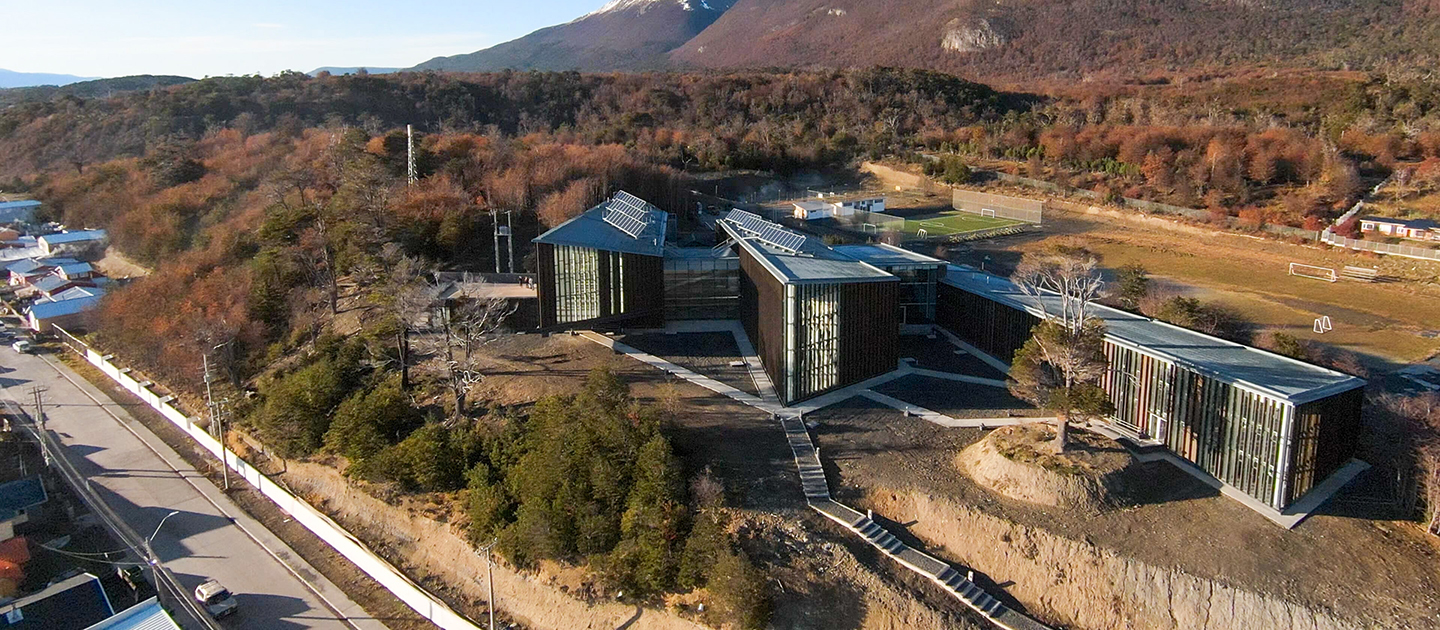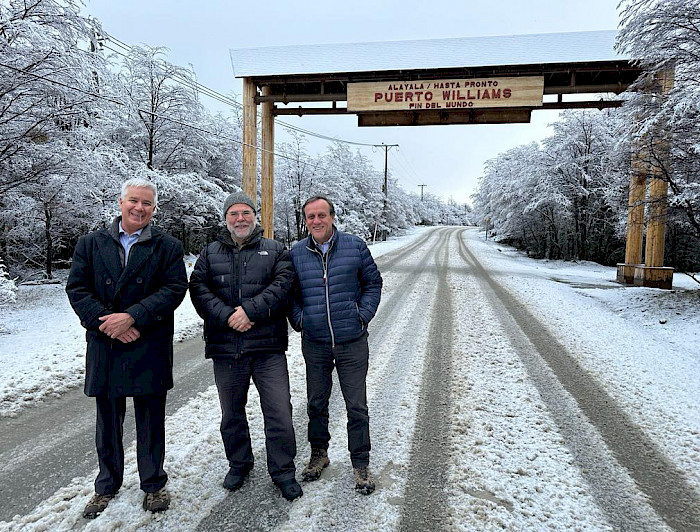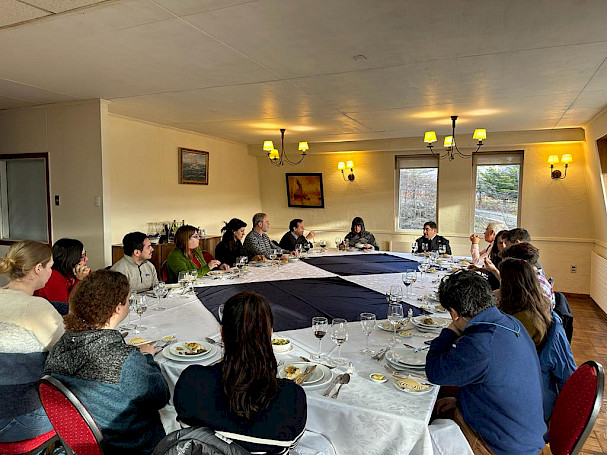
UMAG, UC Chile, and CHIC Strengthen University Partnership to Boost Magallanes as a Scientific Hub
The strategic agreement is part of the cooperation of the consortium of national and foreign higher education institutions that support the work of the Cape Horn International Center (CHIC). Presidents from the Universidad Católica and the University of North Texas participated in the trip to the region.

photo_camera The Provost of the University of North Texas, Michael McPherson; the Director of the Cape Horn International Center (CHIC), Ricardo Rozzi, and the UC Chile President, Ignacio Sánchez, were part of the delegation that met in Puerto Williams to address the challenges of collaborative science in the region. - CHIC Photo
A delegation of national and international university authorities arrived in Puerto Williams, the southernmost city in the world. The delegation included the President of Universidad Católica, Ignacio Sánchez; the Provost of the University of North Texas, Michael McPherson, the Director of the Cape Horn International Center (CHIC), Ricardo Rozzi; the Principal Investigator of CHIC and faculty at the University of Magallanes (UMAG), Flavia Morello, and other prominent figures.
The delegation's journey began in Punta Arenas and then headed directly to the facilities of CHIC in Puerto Williams. The presidents, faculty, and researchers held a working agenda with authorities and the private sector to strengthen the collaborative science promoted by CHIC, a center of excellence funded by the National Agency for Research and Development (ANID, as per its spanish acronym). CHIC is hosted by UMAG and is part of a consortium of national and international higher education institutions, including UC Chile, University of North Texas, and Universidad de Chile, among others.

The delegation traveled to Puerto Williams through this consortium with the aim of achieving a consolidated level on a larger scale, involving private companies and collaborating specifically with CHIC, UMAG, the government sector, and private companies. “The only way to responsibly address the challenges of climate change and biocultural issues is to do it on a multiscale level. In other words, CHIC is a 'glocal' project, addressing challenges at the local, regional, national, and international levels,” said CHIC's director, Ricardo Rozzi, who is also an UMAG and UNT faculty. “The coordination of academic institutions and collaboration from both the public and private sectors, including the regional government and sectors like tourism, artisanal fishing, and austral fiber optics and connectivity, are essential for the success of this endeavor."
Why is it important to create a research agenda with a consortium comprising national and international universities? According to UC Chile’s President Ignacio Sánchez, "The collaboration taking place at the Subantarctic Cape Horn Center in Puerto Williams holds great importance for the University, encompassing both scientific and educational aspects. It provides a means to engage with the local community and to understand their needs. In this way, we can align our educational and research initiatives with the specific demands of our community, ensuring that our university's efforts directly meet the needs of our citizens."
In this regard, President Sánchez also emphasized that "there are more than twenty researchers from different institutions who are working on biodiversity, education, and updating concepts that are being developed in research."
On the other hand, Provost Michael McPherson from the University of North Texas stated that "It seems like the world is getting smaller every day, which means we are more connected than ever before. The world's increasing interconnectedness is evident, with both positive and negative implications. While the pandemic showcased the rapid spread facilitated by this connectivity, it also presents remarkable opportunities for collaboration and addressing global challenges together. Therefore, I consider the joint research efforts between the University of North Texas, universities in Chile, and CHIC to be an excellent opportunity for our students and professors to learn, exchange knowledge, and effectively tackle global issues."


